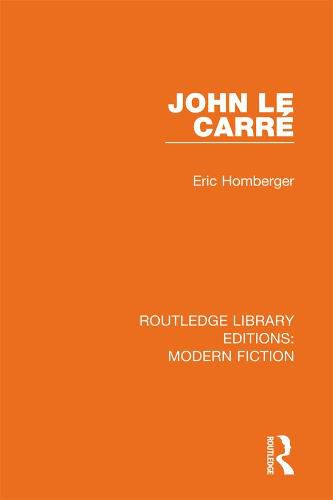Readings Newsletter
Become a Readings Member to make your shopping experience even easier.
Sign in or sign up for free!
You’re not far away from qualifying for FREE standard shipping within Australia
You’ve qualified for FREE standard shipping within Australia
The cart is loading…






Since the heyday of Ian Fleming’s fantasy superspy James Bond, the novels of John le Carre have held up to readers across the world a sombre, fascinating picture of decline, deception and ethical ambiguity. In this study, originally published in 1986, the first to include an interpretation of A Perfect Spy, Eric Homberger argues that within the tradition of the spy thriller of John Buchan and ‘Sapper’ a ‘space’ was created by Somerset Maugham, Eric Ambler and Graham Greene for serious writing. From The Spy Who Came in From the Cold (1963) to The Little Drummer Girl (1983) and A Perfect Spy (1986), le Carre has used that space to make a searching investigation of the nature of post-Imperial Britain. In the process he has become the peer of Conrad and Greene in the recognition that the spy novel is a literary form capable of the highest artistic seriousness.
$9.00 standard shipping within Australia
FREE standard shipping within Australia for orders over $100.00
Express & International shipping calculated at checkout
Since the heyday of Ian Fleming’s fantasy superspy James Bond, the novels of John le Carre have held up to readers across the world a sombre, fascinating picture of decline, deception and ethical ambiguity. In this study, originally published in 1986, the first to include an interpretation of A Perfect Spy, Eric Homberger argues that within the tradition of the spy thriller of John Buchan and ‘Sapper’ a ‘space’ was created by Somerset Maugham, Eric Ambler and Graham Greene for serious writing. From The Spy Who Came in From the Cold (1963) to The Little Drummer Girl (1983) and A Perfect Spy (1986), le Carre has used that space to make a searching investigation of the nature of post-Imperial Britain. In the process he has become the peer of Conrad and Greene in the recognition that the spy novel is a literary form capable of the highest artistic seriousness.